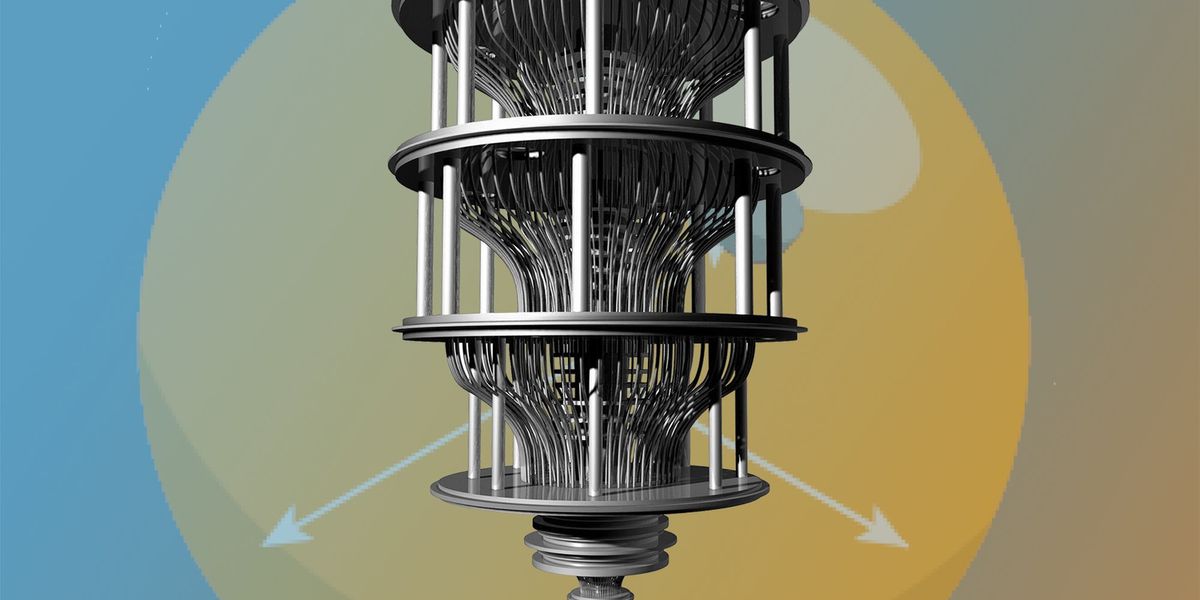7 Trends Daily
Stay updated with the latest insights and trends across various sectors.
Quantum Computing: The Next Leap or Just a Quantum Leap of Faith?
Is quantum computing the future of technology or just a leap of faith? Discover the truth behind the hype in our latest blog post!
Understanding Quantum Computing: How It Works and Its Potential
Understanding Quantum Computing begins with grasping the fundamental principles of quantum mechanics, which govern the behavior of matter and energy at the smallest scales. Unlike classical computers that use bits as the smallest unit of data, quantum computers utilize qubits—quantum bits that can exist in multiple states simultaneously due to the phenomenon of superposition. This allows quantum computers to perform complex calculations at unprecedented speeds by processing a vast amount of possibilities simultaneously. Furthermore, entanglement, another core principle of quantum mechanics, enables qubits that are entangled to be correlated in ways that classical bits cannot, enhancing the computational power and efficiency of quantum algorithms.
The potential applications of quantum computing are vast and transformative. In the realm of cryptography, quantum computers could break current encryption methods, prompting the need for advanced quantum-resistant algorithms. Industries such as pharmaceutical research can leverage quantum computing to simulate molecular interactions and accelerate drug discovery, while sectors like finance can optimize complex portfolios and risk assessment models. As research and development in this field advance, the implications of quantum computing could revolutionize not only technology but also various industries, paving the way for breakthroughs that were previously unimaginable.

Is Quantum Computing the Future of Technology or Just Hype?
As we navigate the ever-evolving landscape of technology, quantum computing emerges as a powerful player that promises to revolutionize various industries. Unlike classical computers that process information in binary (0s and 1s), quantum computers utilize quantum bits, or qubits, which can represent multiple states simultaneously. This capability allows quantum computers to perform complex calculations at unprecedented speeds, opening doors to breakthroughs in fields like artificial intelligence, cryptography, and drug discovery. However, despite the buzz surrounding quantum computing, critics argue that much of the excitement is simply hype, as practical, large-scale applications remain years away.
The true potential of quantum computing lies in its ability to solve problems that are currently intractable for classical computers. For instance, applications in logistics, climate modeling, and material science could significantly benefit from the advanced computational powers of quantum technology. Nevertheless, there are significant challenges to overcome, including issues of error correction and qubit stability. As both startups and tech giants invest heavily in quantum research, the debate continues: will this groundbreaking technology redefine what is possible, or will it remain a conceptual marvel limited to laboratory environments? Only time will tell if quantum computing is truly the future of technology or just a fleeting trend.
Key Differences Between Classical and Quantum Computing Explained
Classical computing operates on the principles of binary logic, utilizing bits as the smallest unit of data, which can either be 0 or 1. This foundational approach enables classical computers to perform calculations and process information using a series of structured operations. In contrast, quantum computing leverages the principles of quantum mechanics to manipulate qubits, which can exist in multiple states simultaneously due to a property known as superposition. This capability allows quantum computers to process vast amounts of data at unprecedented speeds, making them particularly powerful for specific types of complex problems.
Another significant distinction lies in the way data is processed. Classical computers use deterministic algorithms that follow a defined sequence to arrive at a solution, whereas quantum computers utilize quantum algorithms that exploit phenomena such as entanglement and superposition to solve problems more efficiently. For example, quantum algorithms can achieve exponential speedup for certain tasks, such as factoring large numbers or searching unsorted databases. This fundamental difference opens up new possibilities for advancements in fields such as cryptography, optimization, and drug discovery, illustrating the unique advantages of quantum computing over its classical counterpart.